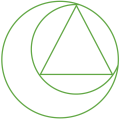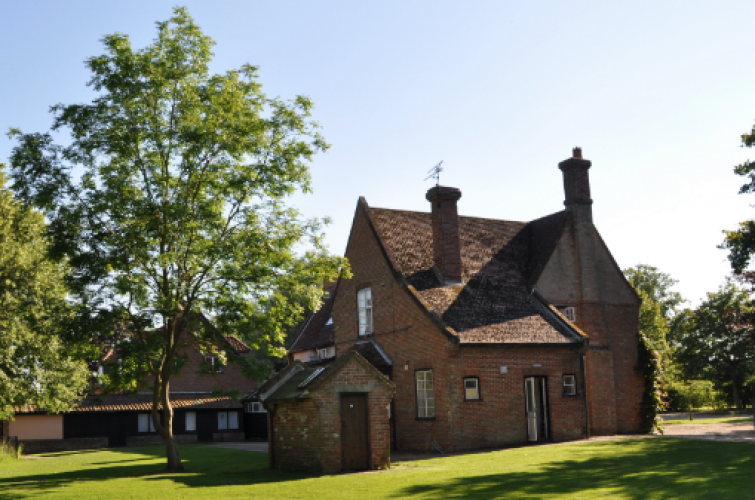I remember the first time a friend of mine mentioned Vipassana, a few years ago. I could never imagine doing it. And then there I was, on my way to attend the 10-day meditation retreat at Dhamma Sukhakāri in Suffolk.
What is Vipassana?
Vipassana means “Seeing things as they really are” and is an ancient meditation technique. It is different from mindfulness meditation, which focuses on awareness, or from transcendental meditation, which uses a mantra.
Vipassana is a self-exploratory journey. The teacher invites you to observe the sensations of the body through a body scan “from head to feet, from feet to head”, without reacting to them. If you feel pain, you just observe it. If you feel a pleasant sensation, you just observe it. You observe both “equanimously”.
By doing so over 10 days, the brain is slowly trained to stop reacting to the vicissitudes of life, and you realise nothing is permanent. Everything keeps moving and flowing.
The focus throughout the course is centred on Vipassana, and students are not allowed to mix it with other healing and mindfulness practices, including Reiki. All these are banned during the entire period.
The courses are free of charge and run with donations from former students – everyone who finishes a course – who wish to give others the opportunity to benefit from the course. The worldwide centres are run by Dhamma, the organisation founded by S.N. Goenka. Nowadays Vipassana is for people from all faiths and backgrounds, but Buddha himself in India originally taught it more than 2500 years ago.
My Vipassana experience
I left London on 11th March, when COVID-19 was declared a pandemic. So, it wasn’t the most ideal time. I had no idea that the situation would dramatically change so fast. No one did.
I was completely isolated. No phone. No conversation. No eye contact with the other students. No distractions. No smoking, drinking or other drugs. No physical exercise, except walking. Women and men were separated. And of course, close to 11 hours of meditation each day. That’s the description of hell, one might say.
Whilst discovering this wonderful meditation technique, I had no idea of what was happening outside the building, until the teacher had to terminate the course at day 8. He informed us that “The world now is not the same as the one we left” and urgently sent us back home. The following day restaurants and pubs closed, and our lives dramatically changed.
But let’s start from the beginning.
 DAY 0
DAY 0I leave home with a strange feeling. I suddenly realise that I am due to isolate myself in the most uncertain time ever due to COVID-19. I ignore that thought, and prepare myself for the course. When I arrive at Stowmarket station, the first guy I meet to share a taxi with mentions that it is his second time doing Vipassana. What a fabulous start, I think. If people are going back, it can’t be bad.
We arrive at the centre around 3pm. It’s quiet. The dormitory and the dining room are both basic, which allows the mind to stay focused and don’t get distracted. There are two fields for the daily walks, one for females and one for males.
You can slice the air with a knife. Silence begins at 8pm and we are still allowed to talk, but somehow everyone is already preparing to be silent. I meet and briefly chat with my roommates, two lovely ladies, one from China and one from Poland. I will later realise how much we have bonded during those eight days, even without speaking: if you share the same pain, there’s no need of communication. We are always so busy talking and not listening, that we actually forgot the beauty of silence. The gift of silence.
At 8pm, we go to the meditation hall. The teacher plays an intro video of Goenka, welcoming students and explaining a bit more about the journey we are starting. The day has a fixed structure, starting at 4am (see image).
They call my name. Carlotta Artuso, 5B, second row. That’s where I will be spending my next 10 days.
We start the first hour of meditation. I extremely uncomfortable and struggle to focus as the brain is somewhere else. I Tomorrow will be better, I think, and I go to bed.
DAY 1
The bell rings outside my room at 4am. I am exhausted, feeling I only slept few hours. The night was turbulent and full of dreams. I have a shower and try to wake up.

Full darkness outside. I go to the meditation hall and sit at 4.30am for the first two hours of morning meditation.
The first step in the practice of Vipassana is Anapana, which means observation of natural and normal respiration, as it comes in and as goes out.
The first three days, students are invited to concentrate on the breath going out of the nostrils, and just observe it, without forcing it. This technique is an easy one to learn, and helps the mind to calm and develop concentration.
During the meditation, I re-live many moments of my life again. Past. Distraction. Future. Distraction. I noticed that I can’t concentrate for more than five minutes, even less. Big breath. I can do it, I say to myself.
I start feeling some pain in my body, and my brain is totally exhausted from the Anapana, but the excitement wins. Everything is new and the day goes relatively quick and easy.
DAY 2
I wake up exhausted as I had another night of little sleep. The mind is constantly working and agitated. I can’t stop it. Brain is in full activity, which stimulates lots of vivid dreams and thoughts.
I know what to expect from the day, and I suddenly realize that every day will be exactly like yesterday. Shit!
Students usually agree that day one and two, and day five and six are the toughest, and when people usually leave. I manage to get through the first worst part, I think before going to bed, my whole body aching. I’ve never been so wrong.

DAY 3
I wake up and my body is in full pain. It’s the third night in a row that I barely sleep. I struggle to get up, I can’t keep my eyes open.
I go to the meditation room, and I keep trying to find a position that might alleviate the pain I have. I can’t feel my back or neck, my knees are burning, my legs are stuck. Every single part of my body is pulsing and pounding, as if my body is about to break, I think.
Meanwhile, I notice that my mind is slowly calming down and is not as agitated as it was just a couple of days ago. I can feel my breath. I can focus on it, for longer time.
A third of the course is gone, I think, after going to bed absolutely knackered. But peaceful.
DAY 4
I finally have a calm night and manage to get some proper sleep. The mind is calm after three days of Apanama. It’s ready for Vipassana. The body is still in pain, but at least I’m rested.
I start to become accustomed about the pain. Observing it, I try to not react. If I’m focus, I can resist the pain and notice it goes away. If I distract myself, I just feel pain.
I spend the day in a rollercoaster of pain and resistance. The mind is getting stronger, and it’s bed time before I even realised it.
DAY 5 AND 6
I’m half-way through the course, I motivate myself as I get up. My body is completely stuck, but I ignore it as I keep seeing massive improvements in the meditation. Ignoring my pain, I start to lose track of time and space. I am just present, living in the moment. A feeling I’ve never had before.
I start noticing some empty seats in the meditation hall. The struggle is real, people are giving up.
DAY 7
I wake up and experience the real body pain. I can’t ignore it anymore. I can’t focus. This is the absolute worst I’ve felt so far. I just want to leave.
Somehow, I manage to finish the day, but I am in a total negative mindset. I badly want to leave. However, the evening discourse turns my motivation around, the teacher pushing us to concentrate for the last two days. “Work diligently, hard, constantly”,Goenka keeps repeating in the video tape.
DAY 8
I wake up and think: two more days. Two more days and it’s finished. I have two days of meditation and silence left, and then on the 10th day the noble silence is broken and I can start talking again.
I’m fully focused, and the 4.30/6.30am meditation flies by. I go for breakfast and rest, and at 8am I am back in the room, ready to meditate again. Unfortunately, that’s when teacher announces that he has to abruptly terminate the course.
WILL I DO IT AGAIN?
Even though I didn’t finish the course, I learned lot of valuable lessons. The evening discourses were really informative and accompany our experience throughout the course. Highlighting the pain of the first days, the difficulty of the brain to concentrate in the present moment, the daily struggles.
As there are no distraction or communication of any kind, I totally faced myself and my thoughts. Going through a “dopamine fasting”, I completely reset my brain.
When I was observing my body, I wanted to move and stop the pain. But I decided to stay in the present without reacting, and noticed that it was eventually dissolving. Through the suffering of the body, I discovered the massive power of the mind. I realised that everything is temporary. The pain. The things we own. Everything. It goes. It transforms.
If you train your mind, you will improve in every aspect of your life. Work. Relationships. Career. Emotions. It’s totally different from control. You don’t control anything. You just observe, and observing you let everything goes, realising nothing is permanent.
It’s a hard training, but it allows me to change the way I see things, my perspective.
I enjoyed lots of aspects of the retreat. The timetable and rules created a calm and peaceful atmosphere for meditation. I met many interesting people I am still in touch with, and last but not least, the food was insanely delicious.
It’s one of the most challenging things I’ve ever done in my life, but it was definitely worth it. I didn’t know I could find so much motivation and strength within myself to push through.
I’m looking forward to starting a new retreat and completing it. Yes, I really am.
I hope this blog might have trigger some curiosity in you to try, feel free to reach out if you have any questions, doubts, concerns, or perhaps want to share your experience.
Stay well and stay connected,
Carlotta x
//
“We cannot live in the past; it is gone. Nor can we live in the future; it is forever beyond our grasp. We can live only in the present. If we are unaware of our present actions, we are condemned to repeating the mistakes of the past and can never succeed in attaining our dreams for the future.” – S.N. Goenka




